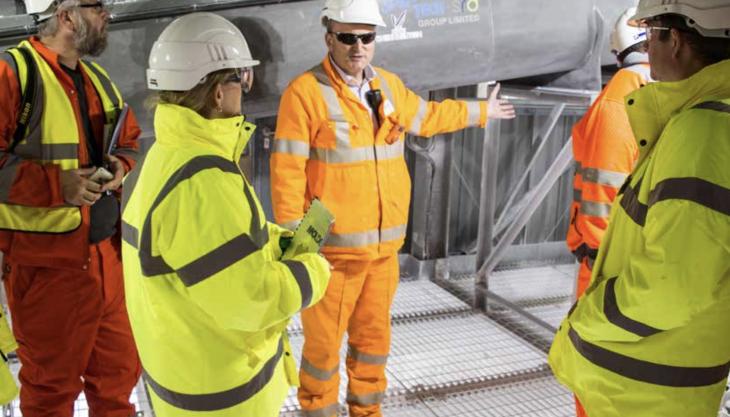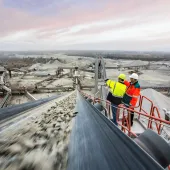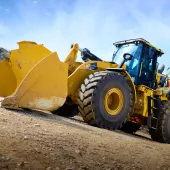BLA publishes 2019 SD Report

British Lime Association Sustainable Development Report illustrates world-leading performance of lime sector
INDUSTRIES supported by industrial lime are as diverse as construction, iron and steel, water treatment, emissions control, agriculture, food production, paper products, glass making, plastics and pharmaceuticals.
Against this background, the British Lime Association (BLA) has published its 2019 Sustainable Development Report, highlighting that the sector maintained its impressive sustainability performance, as UK production continued to grow to more than 1.19 million tonnes.
Following the launch of the Mineral Products Association (MPA) Charter in 2017, the BLA Sustainable Development Report now aligns with the seven MPA Strategic Priorities, highlighting the positive contribution made by the lime industry in 2018 to: Communicating Industry Value, Health and Safety, People, Resource Use, Climate Change and Energy, the Natural Environment, and the Built Environment.
Exports from BLA Members reached new heights in 2018, exceeding 300,000 tonnes – more than double the exports during the recession (c.140,000 tonnes in 2009) – and accounting for more than a quarter of the UK’s total lime output.
However, the BLA says this massive increase represents more than just bounce-back – it is a real increase in export market share, exceeding pre-recession levels by around 40% (around 218,000 tonnes in 2006), and the Association estimates that the 2018 exports added more than £3 million to the UK economy.
The BLA says its members are proud of the health and safety improvements they have implemented over recent years, by continuing to focus on Zero Harm and actively sharing and embedding best practice.
The number of incidents across all employees and contractors has reduced by 40% from 2011 levels, but in 2018 there was an increase in lost-time incidents compared with the low levels achieved in 2014. The BLA is taking active steps to address these issues.
The report also highlights:
- 17% lower CO2 – Decarbonization from dolime combustion since 2011
- Waste to landfill – 76% lower than 2011
- 40% fossil fuel replaced with alternative fuels in dolime manufacture
- Export sales – 15% increase since 2011 and 38% since 2006
- Particulate, NOx and SO2 emissions – 1,370 tonnes less than 2011
- Environmental incident free – No Category 1 or 2 incidents.
Commenting on the sector’s performance, Dr Rebecca Hooper, manager of the BLA, said: ‘Lime is an essential material for our daily lives and makes a significant contribution to the economy. We are proud to supply quality products to UK markets and overseas while maintaining world-leading environmental performance.
‘We are pleased to be engaging with government and research institutions on our low-carbon future. We value the people who work for us and are maintaining our focus on improving health and safety issues.
‘BLA members are an important source of jobs and we work closely with local communities, making an active contribution through formal volunteering and by encouraging informal staff-organized charitable activities.’
A copy of the British Lime Association’s ‘Sustainable Development Report 2019’ can be downloaded below.









